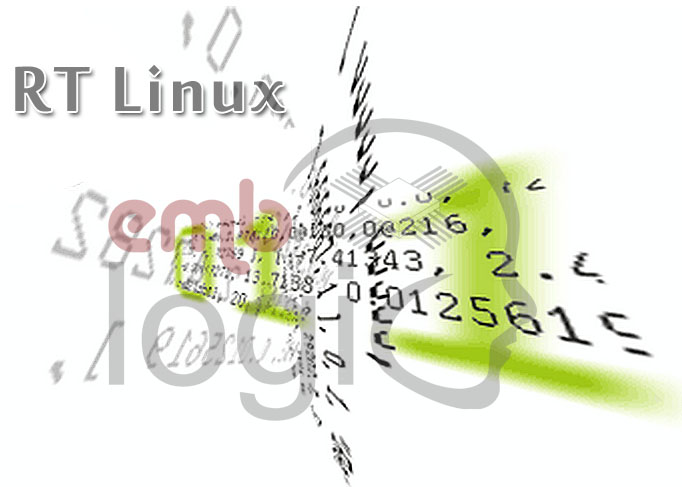Project 024: RTOS RTLinux
Abstract:
RTLinux is a hard realtime RTOS microkernel that runs the entire Linux operating system as a fully preemptive process. It is the hard realtime variant of Linux that makes it possible to control robots, data acquisition systems, manufacturing plants, and other time-sensitive instruments and machines.
It was developed by Victor Yodaiken, Michael Barabanov, Cort Dougan and others at the New Mexico Institute of Mining and Technology and then as a commercial product at FSMLabs. Wind River Systems acquired FSMLabs embedded technology in February 2007 and made a version available as Wind River Real-Time Core for Wind River Linux. As of August 2011, Wind River has discontinued the Wind River Real-Time Core product line, effectively ending commercial support for RTLinux.
Introduction:
RTLinux is a hard Real-Time OS (RTOS) which uses an original approach to develop complex hard real-time applications in a fairly easy way: Executing a hard RTOS (RTLinux itself) jointly with Linux in the same box. This approach enables splitting up a hard real-time application according to its criticality, the part with deadline requirements is run on the RTOS while the part with no “special” time requirements is executed on Linux.
However, this approach presents two drawbacks. Firstly, Linux has a big footprint, especially in the 2.6 series, which is unsuitable for system with low resources. On the other hand, it is possible for a Linux application to directly disable interrupts, disrupting the real-time properties of RTLinux.
Several years ago, people from our department developed Stand-Alone RTLinux (SA-RTL), a RTLinux-compatible standalone kernel which was able to execute RTLinux applications in a bare machine. However, this approach was not completely optimum since was built cutting and pasting code from RTLinux, being rather difficult to maintain. Besides, it did not provide binary compatibility with RTLinux applications.
We present Embedded RTLinux (ERTL), our second approach of what a Stand-Alone RTLinux system should be. This second kernel, unlike SA-RTL, just replaces Linux with a minimal set of drivers, allowing to execute the original RTLinux jointly with a RTLinux application on a bare machine.
Training Objective:
This course is designed to ensure that students of Engineering College with academic capabilities and the professionals will have the skill set needed to deal with the challenges involved in real-world embedded technologies to meet the needs of industries both today and in the future.
The course considers real time system design techniques which can help to ensure that rigid time contraint embedded systems are reliable.
The course is taught mainly using the Linux operating system, and PC emulated as an embedded device.
Prerequisite:
- General understanding about operating system concepts is assumed.
- A good knowledge of Linux commands, Linux internals.
- Basic knowledge of Device Drivers would be an added advantage.
Agenda;
-
6 Weeks Program:
-
There would be 24 Classroom Sessions of 2 hours each.
-
There would be 24 Lab of 6 hours each.
-
The Duration of training would be 6 weeks.
-
-
14 Weeks Program:
-
The Duration of training would be 14 weeks.
-
There would be 56 Lab of 6 hours each.
-
There would be 56 Classroom Sessions of 2 hours each.
-
There would be one Project Implemented using the concepts observed and Technologies learned.
-
-
20 Weeks Program:
-
The Duration of training would be 20 weeks.
-
There would be 80 Classroom Sessions of 2 hours each.
-
There would be 80 Lab of 6 hours each.
-
There would be more then 1 Project Implemented using the concepts observed and Technologies learned.
-
- Introduction
- RTCore Basics
- Real-time Concepts and RTCore
- The RTCore API and POSIX compliance
- Communication between RTCore and the GPOS
- Debugging in RTCore
- Tracing in RTCore
- IRQ Control
- Writing Device Drivers
- RTCore Drivers
- Real-time Networking
- RTCore Networking
- PSDD
- The RTCore POSIX namespace
- VxIT
- Controls Kit (CKit)
- Familiarizing with RTLinuxPro
- RTLinuxPro Optimizations
- In-kernel C++ Support
- System Testing
EmbLogic is an ISO 9001:2008(QMS) (Quality Management System) Certified Company
